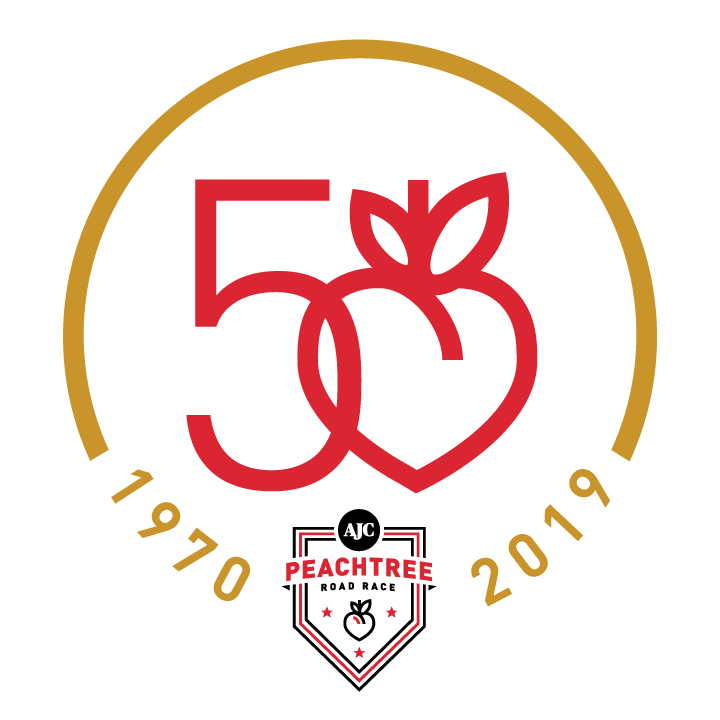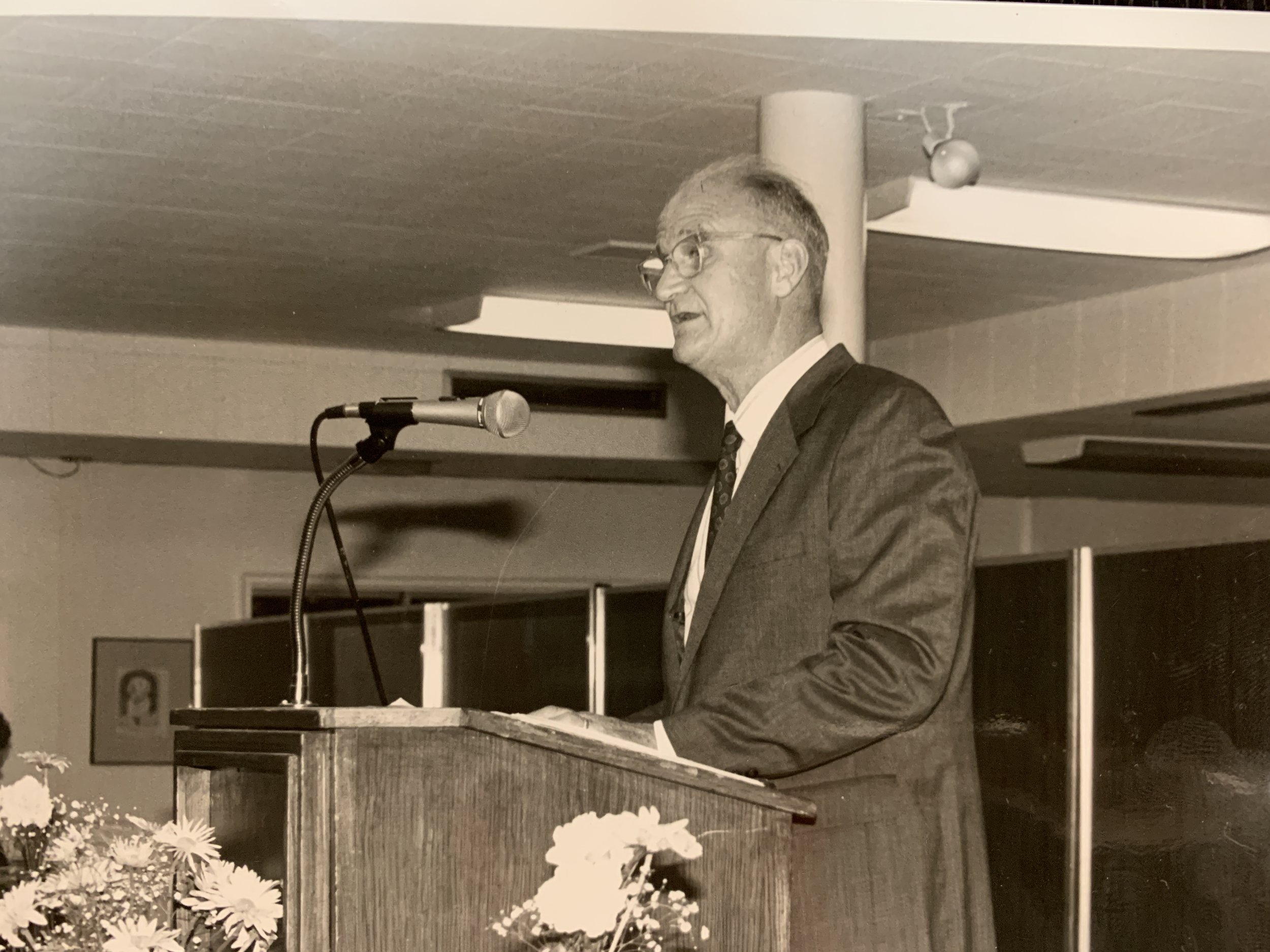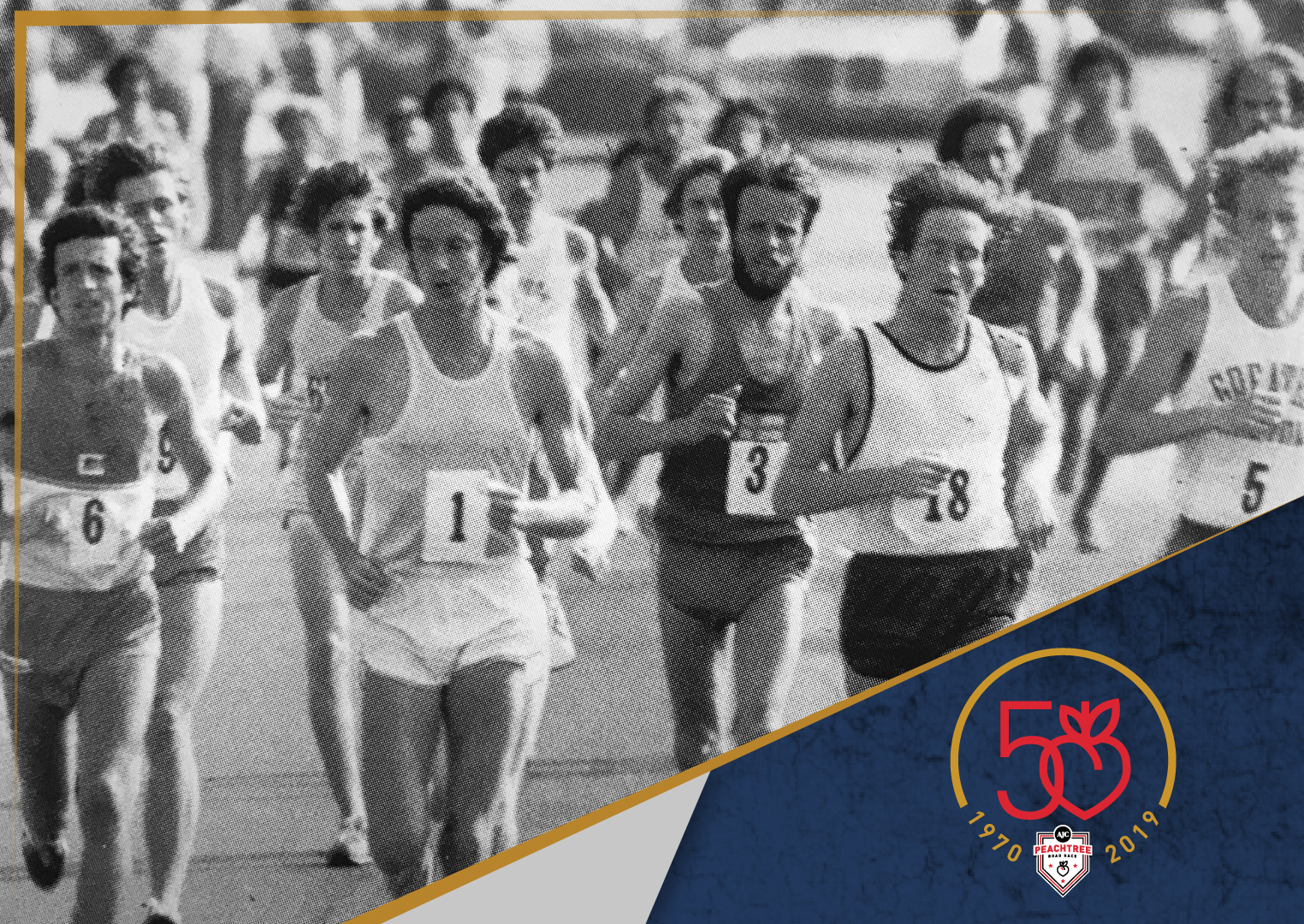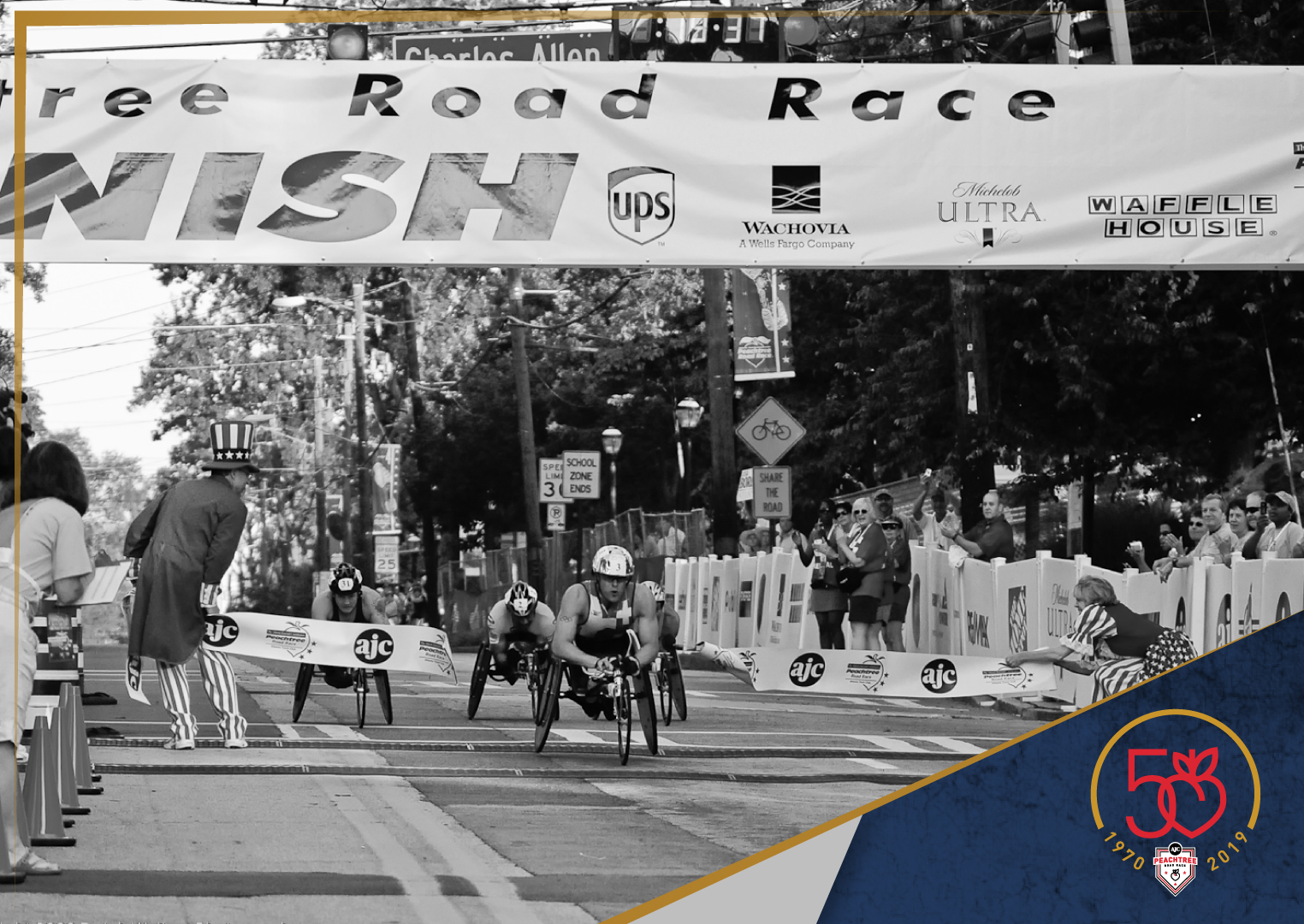Hawthorne Wesley: An Atlanta Track Club Original
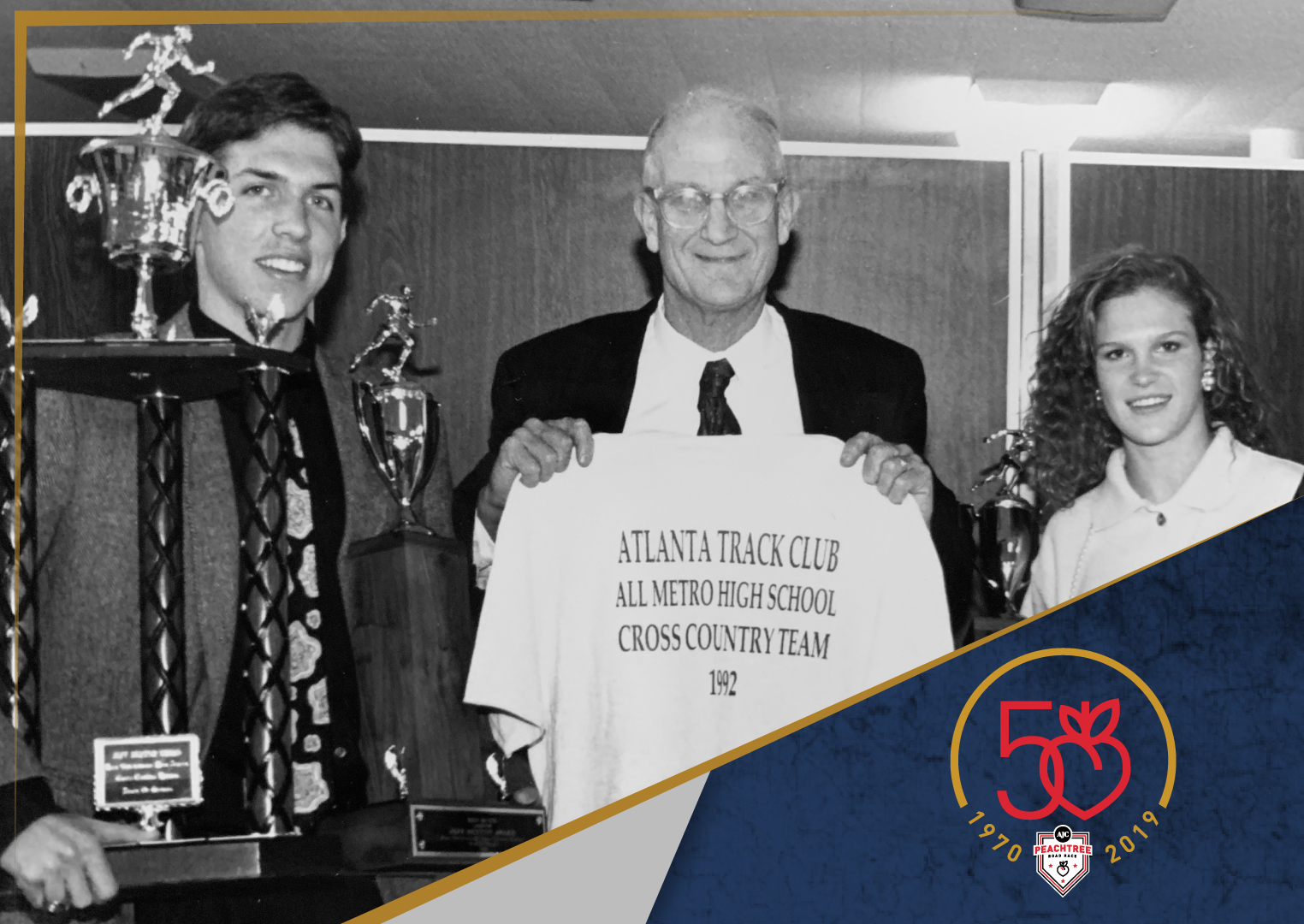
The AJC Peachtree Road Race has a lot of legends. Galloway. Barron. Singleton. Emmons. Names that have become synonymous with the world’s largest 10K.
Perhaps you haven’t heard of Hawthorne Wesley. He’s never run the race, much less won it like Jeff Galloway or Gayle Barron. He didn’t invent it, like Tim Singleton, or direct it, like Julia Emmons. But there is little question Wesley he belongs on that list. He’s been there since the beginning and is part of the foundation of the running community that created the Peachtree and turned it into what it is today.
For someone who describes himself as an egomaniac, the 84-year-old Wesley doesn’t give himself much credit, calling the entire formation of Atlanta Track Club and, six years later, the AJC Peachtree Road Race, “one big happy accident.”
Back in the early ‘60s, he said, the Metro Atlanta Track Coaches Association and the Atlanta Striders had a joint feud with the governing – and often authoritarian – Amateur Athletic Union over money generated by a track meet organized by the local running organizations. “So we got mad,” said Wesley, a member of the Striders, “and the two groups got together and we formed the Atlanta Track Club.”
Wesley was one of approximately 25 people at the first meeting of the Atlanta Track Club, on November 4, 1964.
“I didn’t run today because I had a meeting tonight,” Wesley wrote in his training log at the time.
Now, nearly 55 years later, he is the only person at that meeting who is still actively involved with the Club.
Wesley’s love affair with running began long before 1964. He ran track and cross country at North Fulton High School (now North Atlanta High School) and later at Auburn University, where he was on three SEC Championship teams: two in outdoor track and one in cross country. Even as a young adult starting off his career as an engineer, he continued to compete into his early 30s in local meets and road races, but once involved with Atlanta Track Club he started pouring his passion into the operational side of the organization. He was a member of the first Board of Directors, serving as chairman of the awards committee, and stayed on the board until 1985, serving as president in 1968. He also edited Wingfoot Magazine.
As a member of the Club’s road race committee, Wesley was also known to fill some less-standard roles. He recalled using his 6 foot, 3 inch height to advantage as a human turnaround point in one early Club race: “I stood out there in the middle of the road, and when they came to me on the right side of the road, they turned around and went back on the other side. I was sort of the post. They had to run around me to complete the race, and I made sure everybody ran all the way.”
When the committee’s leader, Tim Singleton, founded the AJC Peachtree Road Race in 1970, Wesley became part of its small crew. That year marked his debut as the finish line timer, a job he would fill until 2014. Before the days of mats and chips, timing the Peachtree was a primitive science. Wesley explained that a Delta employee would open the airline’s ticketing center, which was then located at the starting line, so that a Peachtree volunteer could use the phone inside to call a pay phone at the finish. When the starting gun fired, the volunteer would tell the person standing 6.2 miles away at the pay phone to start the clock. At the same time, Wesley would take off in a car with his stopwatch running. He’d be standing there at the finish line by the time runners arrived to shout out their official finishing times.
That system worked until 1976, when participation in the race skyrocketed. That was the year the AJC became the title partner and publicized the race to its wide audience. Wesley described the finish line as chaos. “Most of the people registered there at the day of the race and instead of being 900 or 1,000, there were 6,000,” said Wesley. “The finish line was awful. At Five Points there was a single-file line around the corner. There was a lot of verbal abuse. I think I even got spit on a couple of times.”
The following year, when 12,500 participants finished the Peachtree, Wesley and his team were ready, setting up multiple finish chutes to ensure that everyone got their times. When it was all over, he said, the Club claimed an unofficial world record for most people accurately timed in a single race.
Even as technology progressed, Wesley continued to hop in a car and speed down the course to get to the finish line with his stopwatch, necessary for any official record keeping. He clicked “stop” when Joseph Kimani ran 27:04 to set the Peachtree course record in 1996. He clicked “stop” when Lornah Kiplagat set the women’s course record of 30:32 in 2003.
In 2014, Wesley decided it was time to hang it up. “With the phones they have today, all you have to do is sit at the starting line, and yell ‘start,’ and somebody else with a phone can yell ‘start’ and you’ve got it within a few hundredths of a second,” he said.
You can still find Wesley at the finish line on July 4. Living on West Shadowlawn Avenue, just blocks from Atlanta Track Club’s former longtime headquarters, Wesley ventures down to Piedmont Park for the race every year
He travels to races a lot, as well, especially high school and college meets. You can still find him at Georgia’s high school track and field state meet in Carrolton every year, where he meets up with one of his old Atlanta Track Club co-founders, Ken Winn, the Club’s original treasurer.
“I was at the SEC Championship cross country meet in Auburn last year and I look over and there’s Hawthorne,” said Andy Carr, community coach at Milton High School and Atlanta Track Club events coordinator.
In perhaps his most lasting legacy, Wesley took charge of Atlanta Track Club’s ceremony to honor high school athletes in 1964 and held that role for 50 years, officially retiring in 2014 but never truly stepping away.
Since taking that position of awards chairman 55 years ago, Wesley has dedicated his life to honoring the accomplishments of Georgia’s high school athletes. That position meant he organized, planned and hosted the Club’s All Metro banquets, and he continued to do so every year until 2014. A living encyclopedia of Georgia track and field and cross country, he now takes his spot in the front row at the banquets, where he is often called upon by the ceremony’s new host to provide a quick fact.
“Hawthorne is the heart and soul of that program,” former Atlanta Track Club Executive Director Julia Emmons told the AJC in 1993. “He knows some of the athletes better than their coaches and parents.”
Winn agreed, laughing: “He knows everything. I guarantee he knows everything. Every coach knows him, too.”
Even with all the time he spends following and researching high school athletes; even with two adult children and a grandchild; even while serving on the board of the track and field booster club at his high school alma mater, Wesley still finds time to run. “I have had women pushing baby carriages going past me, but I still like to say I'm running because if I were a race walker, they'd DQ me because of the way I walk,” he joked.
Hawthorne Wesley has been part of Atlanta Track Club since Day One. He doesn’t plan on leaving anytime soon, saying: “I think you might say that track and cross country, other than my family, has been the biggest thing in my life.”
Research contributed by Terry Banker.
